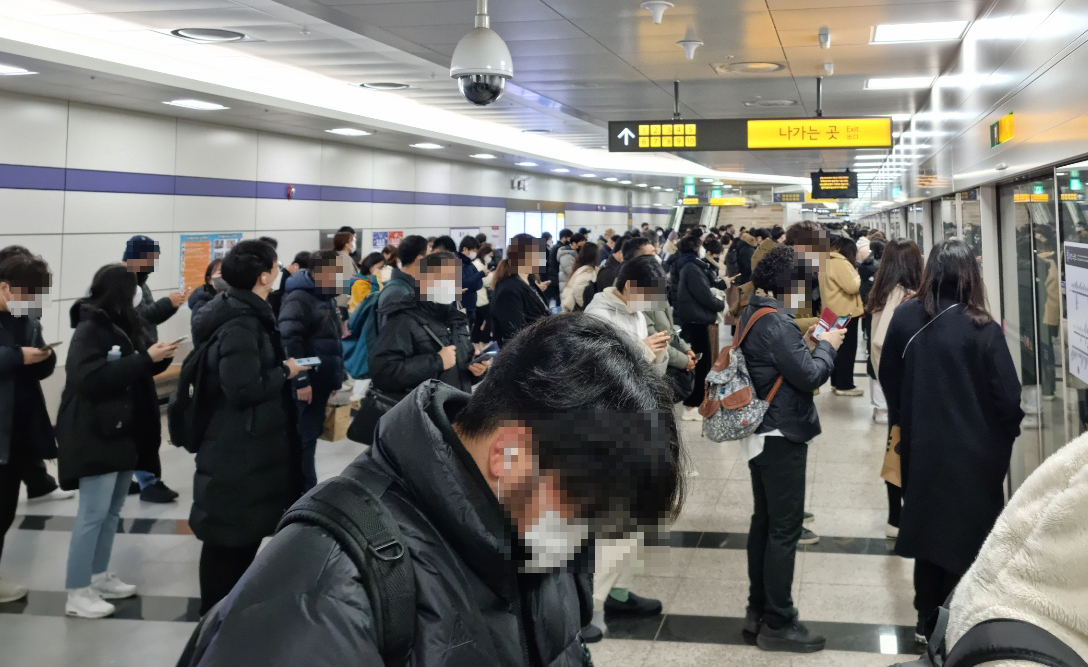 |
Passengers wait in line for a subway train at Gunja station, Seoul on Dec. 3. (Yonhap) |
Seoul’s Subway Line No. 1 posted the highest concentration of fine dust among all eight lines operated by Seoul Metro this year, data showed Thursday.
Subway Line No. 1 recorded an annual average of 74 micrograms per cubic meter of dust particles smaller than 10 micrometers in diameter, or PM10. The reading was higher than last year’s 66.6 micrograms, data from the operator of the eight subway lines in the Seoul metropolitan area showed.
Line No. 4 came next at 70.8 micrograms, followed by Line No. 3 (53.8 micrograms), Line No. 5 (50 micrograms), Line No. 6 (49.6 micrograms), Line No. 2 (49 micrograms), Line No. 7 (45.9 micrograms) and Line No. 8 (32.6 micrograms).
On Line No. 1, Dongdaemun, Jonggak, and Jegi-dong stations recorded levels categorized as “bad” -- the second-highest level in a four-tier warning system. The stations recorded highs of 124 micrograms, 103.6 micrograms, and 90.2 micrograms, respectively.
A bad-level fine dust alert is issued when 81 to 150 micrograms of fine dust particles are recorded per cubic meter, according to the Environment Ministry. Under the law, all subway stations are advised to keep the level of fine dust under 100 micrograms.
Older subway stations tend to have poor ventilation systems and are more crowded due to their smaller space compared to newly built stations, leading to higher levels of dust particles, according to environmental experts.
As for the ultrafine dust, or particles smaller than 2.5 micrometers in diameter known as PM 2.5, Line No. 4 topped the list with 44.2 micrograms, up from 39.6 micrograms a year earlier. It was followed by Line No. 1 (42.7 micrograms), Line No. 3 (33.8 micrograms), Line No. 2 (31.9 micrograms), Line No. 6 (30.5 micrograms), Line No. 7 (29.7 micrograms), Line No. 5 (29.2 micrograms) and Line No. 8 (23 micrograms).
PM 2.5 is considered more harmful to human health than PM 10.
By Choi Jae-hee (
cjh@heraldcorp.com)








